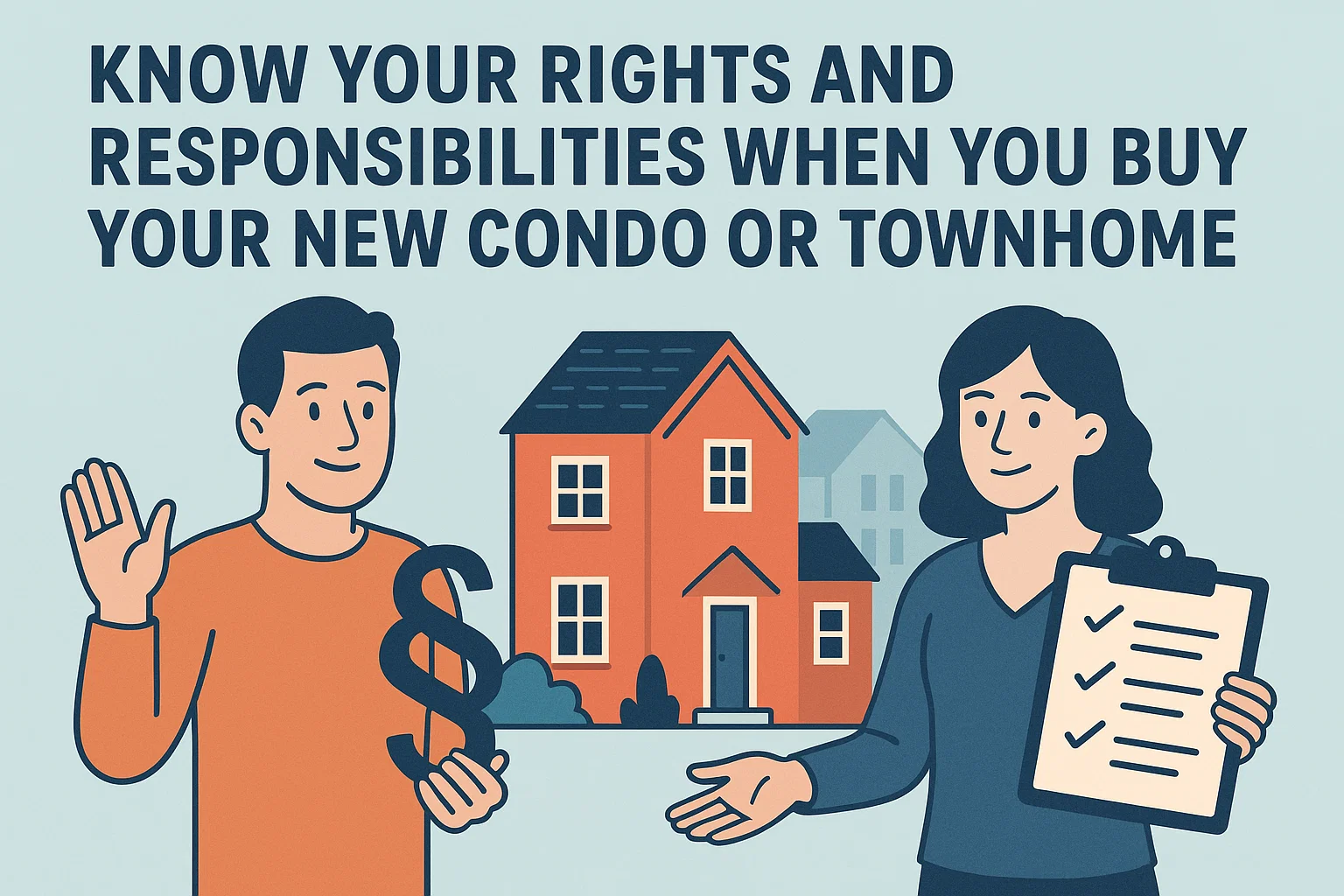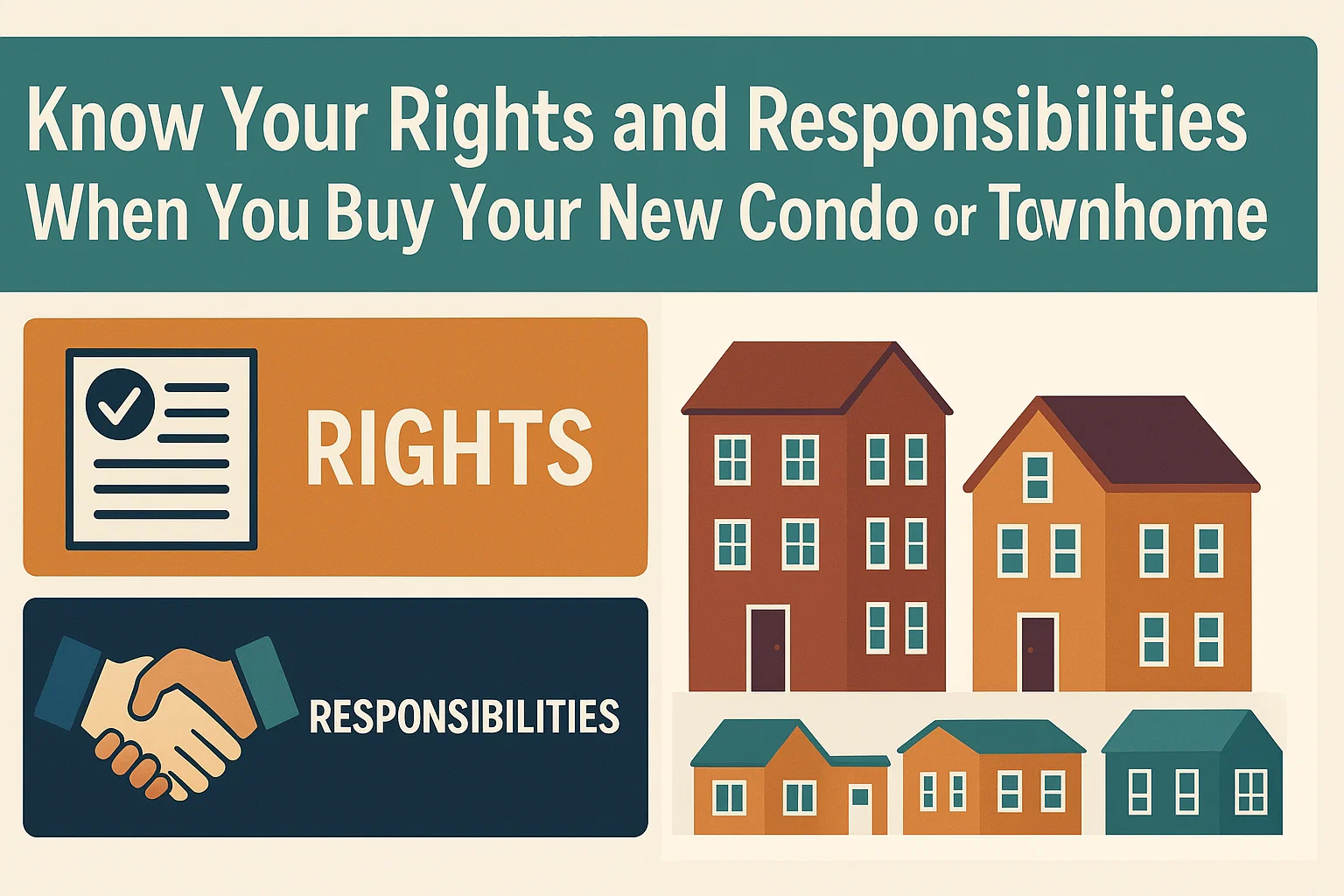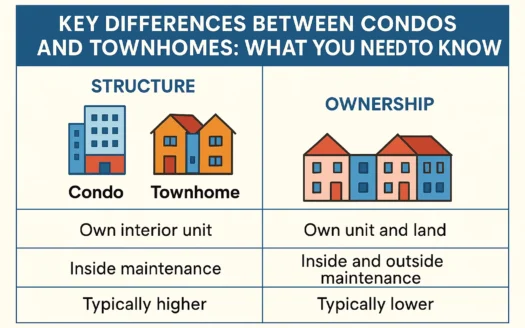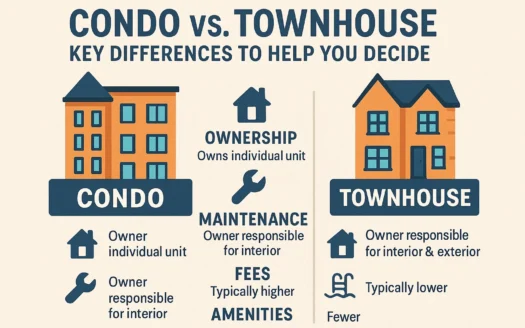Know Your Rights and Responsibilities When You Buy Your New Condo or Townhome

Know Your Rights and Responsibilities When You Buy Your New Condo or Townhome
Condos, co-ops, townhouses – home shoppers have a range of multifamily housing options. These terms don’t mean the same thing, even though they sometimes get used interchangeably, causing confusion for homebuyers. It’s often hard to understand what housing type you’re purchasing, and the rights and responsibilities you will have as an owner, unless you delve into the package of documents the developer provides to decipher the legal lingo.
You may be surprised to find out, for example, that the single-family detached home you’re buying is a condominium. Or that you’ll own the attached dwelling your developer calls a “townhouse” in fee simple. There are numerous types of hybrid developments, most subject to specific restrictions. Without reading the disclosure documents, you can’t fully understand your rights and responsibilities as an owner.
“Buyers of new homes need to pay attention to what they’re buying so that they’re not surprised later,” says a condominium and planned development lawyer in Fort Lauderdale, FL. “They need to understand the documents governing what they’re buying into, but they are inches thick and very difficult for a layperson to read and understand.”
What could happen if you don’t review these documents or work with an attorney who does? You might not realize there’s a restriction on pets in the community, that you can’t keep your truck in the driveway overnight, or that your window coverings must be a certain color. You may also be unaware of rules prohibiting painting your house, planting flowers, or obligations to pay thousands in special assessments to the homeowners or condominium association after closing.
“Right on the cover of a prospectus in Florida, in big bold letters, is that oral representations cannot be relied upon. The salespeople are there to sell units. Even if a salesperson tells you something, the contract embodies everything, and nothing else applies.”
The bottom line in Florida—and many other states—is clear: If it’s not in writing, it doesn’t count.
Forms of Ownership: What’s the Difference?
While there are regional differences in terminology, here’s a basic overview of common residential ownership types:
Fee-Simple Ownership
Most common for single-family homes. The owner holds title to both the house and the land. Fee-simple owners may still face restrictions if part of a planned unit development or HOA.
A Condominium
The buyer owns the interior of a multifamily unit and shares an undivided interest in common areas (walls, hallways, pool, etc.).
Cooperatives
Less common than condos. Co-op owners hold stock in a corporation that owns the building, with a proprietary lease granting occupancy rights to their unit.
Hybrid Forms of Ownership
Townhouses may have fee-simple or condominium ownership. Single-family homes can also be condos. Complex hybrids include mixed-use developments with residential, retail, and hotel spaces.
“We divide the building up vertically into cubes of air space. The buildings are not condominiums – the ownership is fee simple of those cubes of air within the building.”
Doing Your Due Diligence
Understanding your obligations and restrictions before signing a contract is essential. Consequences of overlooking these details can impact property use. According to the Foundation for Community Association Research, 61% of new housing is in community associations, with 70 million residents in 344,500 associations nationwide.
What should you do before purchasing a home in a community association?
- Hire an Attorney: Legal review of disclosure documents ensures awareness of critical restrictions.
- Review the Association Budget: Confirm adequate reserves for future expenses. New developments often underestimate budgets, leading to higher assessments later.
- Work With a Knowledgeable Local Real Estate Agent: They can alert you to poor management or upcoming special assessments.
- Ask Questions: Treat the purchase as an investment in a business. As one industry expert notes, “Even though it’s not for profit, it’s still a commercial enterprise.”



